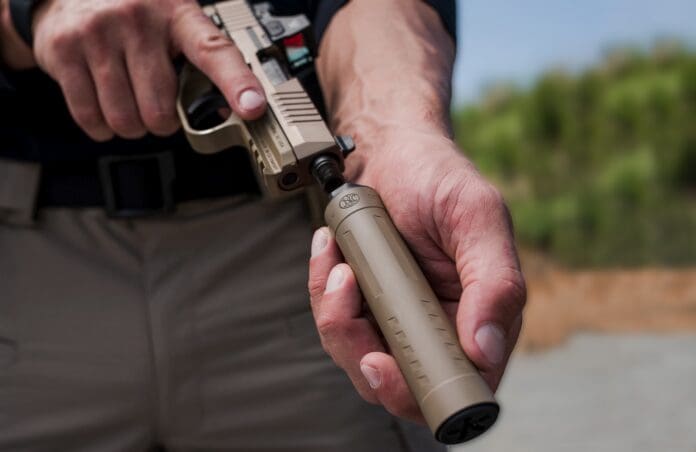
In a transfer lauded by Second Modification supporters, Rep. Bob Good (R-VA) is poised to introduce laws that may take away gun silencers from federal regulation, a big shift in firearm accent legal guidelines. Titled the Silencers Assist Us Save Listening to Act, or SHUSH Act, the invoice goals to completely decontrol suppressors, eradicate related penalties, and prolong hid carry privileges with silenced firearms to present and retired regulation enforcement officers.
In an interview with the Washington Examiner, Rep. Good expressed his broader intention behind the proposed laws, emphasizing each Second Modification rights and the discount of bureaucratic hurdles in firearm security accent procurement. “I oppose any type of regulation or tax on the individuals’s proper to maintain and bear arms,” Good instructed the Examiner. “No constitutional proper must be in danger because of public opinion, or topic to regulatory and tax burdens. These rights definitely prolong to the procurement of security equipment for firearms.”
Suppressors, intermittently known as silencers, connect to the barrel of a firearm to attenuate the noise and muzzle flash produced upon firing. Regardless of frequent misconceptions fueled by their portrayal in movies and tv, suppressors don’t silence weapons however scale back the firing sound to safer ranges, serving to stop listening to loss amongst shooters.
The present authorized course of for buying a suppressor is ruled by the Nationwide Firearms Act, which mandates an intensive approval course of, together with registration with the Bureau of Alcohol, Tobacco, Firearms, and Explosives and a $200 tax. This course of can delay the acquisition of a suppressor for over a yr, irritating many potential consumers.
Furthermore, the SHUSH Act would overturn suppressor bans in a number of states and territories, together with California, Delaware, Hawaii, Illinois, Massachusetts, New Jersey, New York, Rhode Island, and the District of Columbia, the place these units are presently prohibited.
Rep. Good’s proposal represents a big deregulatory effort within the realm of gun legal guidelines, aiming to streamline processes and affirm constitutional rights with out the burden of what supporters take into account extreme regulation. Because the invoice strikes towards introduction, it stirs a potent dialogue on the steadiness between firearm regulation and particular person rights, setting the stage for a strong debate in Congress.





















